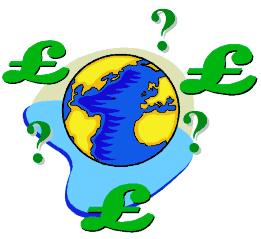| Green Economics - The basics | |
|
Costing the Earth |
|

|
Markets fail to efficiently allocate resource in the presence of externalities. With environmental concerns the situation is further complicated by the fact that;
|
|
These are the characteristics associated with "public goods" for which traditionally there is no market value. The question of efficiency must also somehow include the concept of "fair distribution". That is, if global warming raises sea levels it has been suggested some islands will be lost. The island people could perhaps be compensated for loss of land and moving costs, however, this is a real loss, the islands and their culture are no longer in the bank so to speak and as such there are ethical issues that need to be addressed. It is also important to be aware that with traditional economic views, once goods are costed they are considered to be capital, but capital is undifferentiated resources however are not interchangeable, i.e. a deficit accrued in one area cannot necessarily be off-set by a profit in another. For example we cannot equate the reduction of rainforest with improvements in water quality. Traditional economic theory has been extended in various ways to incorporate the issue of the environment and the area is continually developing. Based on the UNCED (United Nations Conference on Environment and Development) recommendations, which were endorsed by the 46th Session of the General Assembly, and UNEP's Governing Committee decisions, UNEP's work in environment and economics includes four main components:
Integration of environment and economics will enable countries to choose projects that aim to maximise net long-term benefits for their populations and achieve environmentally sound and sustainable development. The next section briefly reviews some of the economic accounting methods. |
|